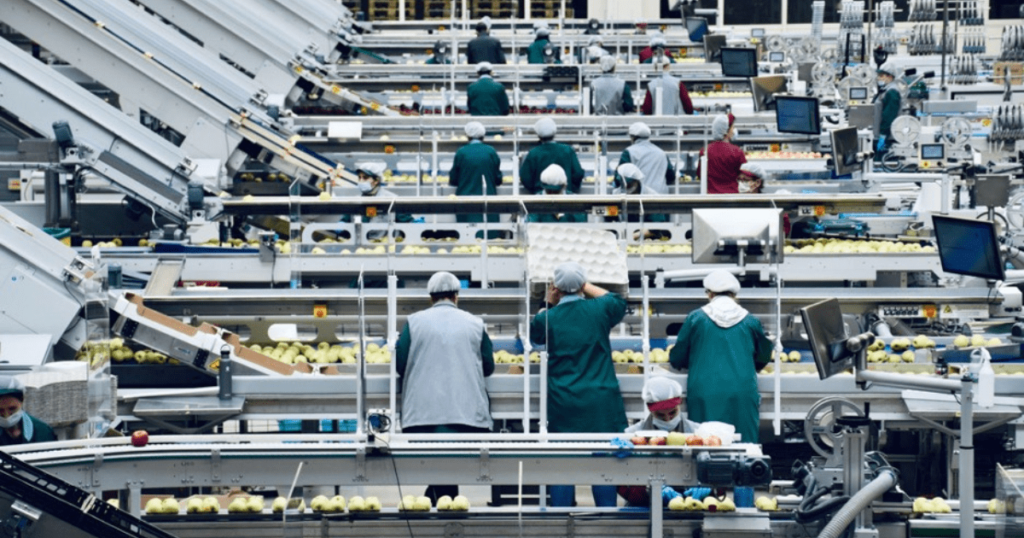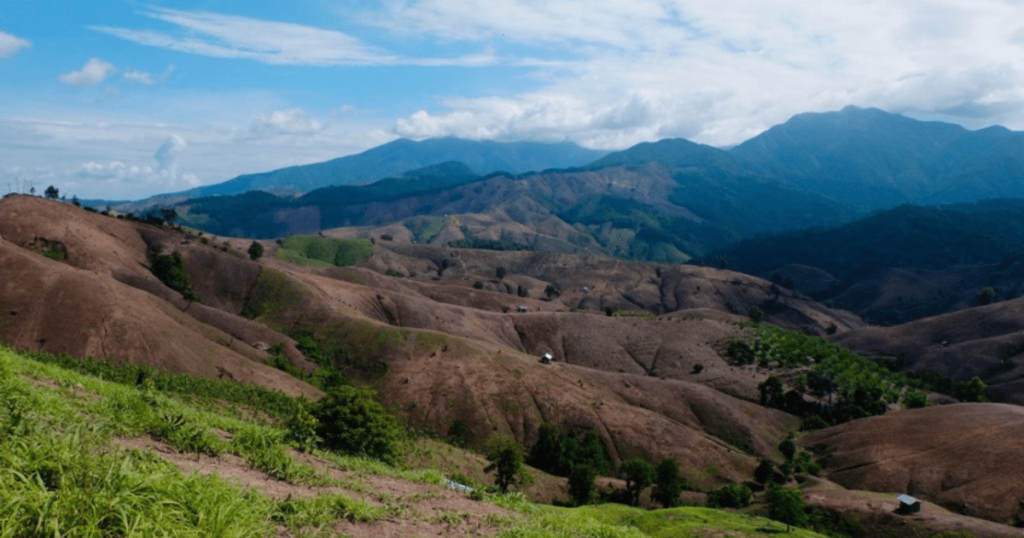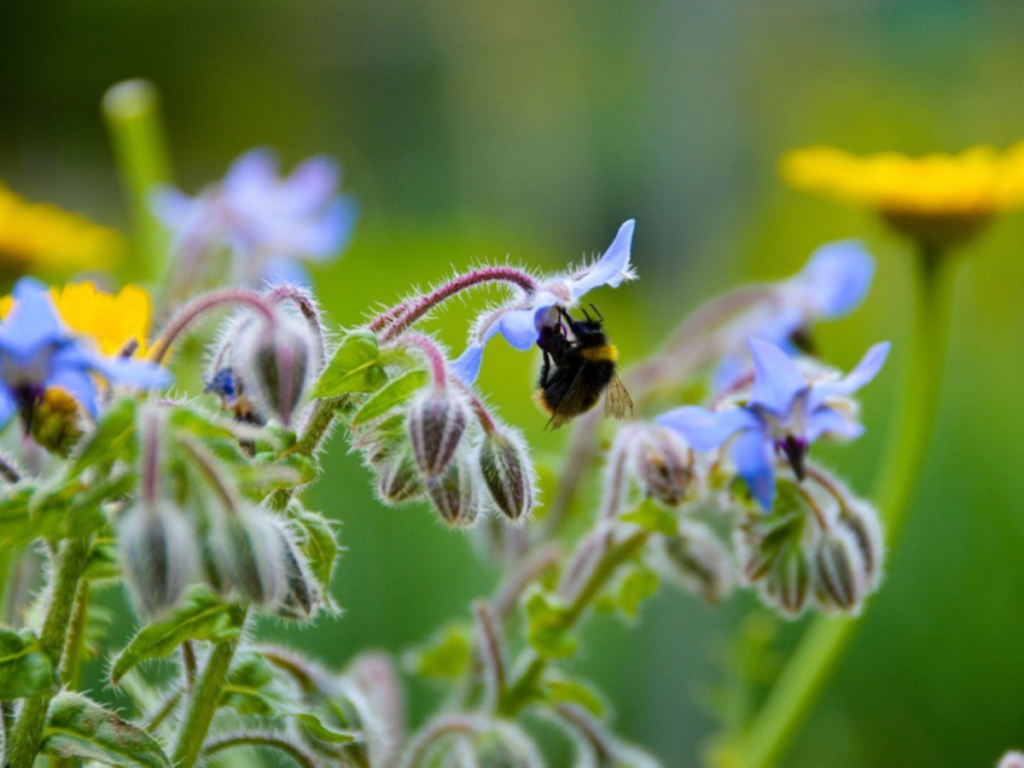In this blog, we’re covering Biodiversity and Food Production and the impact of our diet, and how to help. We’re exploring how biodiversity loss impacts the food industry and the areas of opportunity we have to do something about it.
Biodiversity is essential for a sustainable food system. Every micro and macro organism plays an important role in the planet’s balance and health. And our food system could be heavily affected if this balance is lost.
What is Biodiversity?
Biodiversity refers to all the different species and living beings inhabiting our planet— including plants, animals, microorganisms, fungi, and algae. Our planet thrives with biodiversity, and all of these species work together to support life on earth.
Everything the planet gives us to survive is supported by biodiversity. Without it, we wouldn’t have food, clean water, safe spaces to live in, and medicine. Biodiversity works in perfect harmony and coherence and it plays a critical role in the food chain.
Why Does Biodiversity Loss Matter?
Without biodiversity, there wouldn’t be life on earth. Biodiversity is important to maintain balance and stability within the food chain and the different ecosystems. Every being, from the smallest to the biggest, is necessary to keep this balance.
Let’s look at soil, an essential component for growing food. Healthy, life-sustaining soil is made up of air, water, minerals, organic matter, and micro and macro-organisms. A couple of the most important organisms in soil are mites and earthworms.
Certain pesticides harm or kill both these organisms, which play an essential role in maintaining healthy soil. Without them, the soil slowly starts to die, and it’s unable to give life to plants. About 95% of the food we eat relies on soil. And we’re damaging it at a rapid pace.

This is just one of the many examples of how biodiversity plays a critical role in food security. And how impactful biodiversity loss is on our ability to grow food. We must learn how to feed the world without continuing to damage the environment.
The Impact of Food Production on Biodiversity
Food production affects biodiversity in many different ways. From monoculture agriculture to land use to factory farming, our exploitative ways of growing food are catching up to us. In fact, food production is the main cause of biodiversity loss worldwide.
We’re losing biodiversity at a higher rate than ever before in human history. And agriculture is one of the driving factors causing this trend. The global rate of species extinction is at least tens (potentially hundreds) of times higher than the average rate over the past 10 million years.
We’re farming 70+ billion animals for human consumption every year. To make space for these animals, we’re relying on deforestation—destroying jungles and old-growth forests. We also need to grow food for these animals, which requires more land use, thus more deforestation.
In the United States, the U.S Department of Agriculture (USDA) has killed over 34 million native, wild animals to protect chickens, cows, and pigs. And they continue killing over a million every year, including wolves, coyotes, mountain lions, bears, foxes, birds, and many more.
In the Amazon rainforest, 70% of deforestation is caused by farming cattle.
The relentless taking and exploitation of our natural resources is leading to animals losing their lands. Deforestation displaces entire species and ecosystems. It takes their sources of water, food, land, and shelter.
This is disrupting the natural balance of our planet, causing mass extinction, biodiversity loss, and extreme weather events. We are in urgent need of a makeover of our food system and our diets. A reform that feeds the planet while respecting planetary boundaries.
What Does Biodiversity Loss Mean for the Food Industry?

Biodiversity is essential for our ability to produce food—and losing it puts food security at risk. It makes animals and plants less resilient, leaving them vulnerable to disease. Climate change is already putting a lot of pressure on our planet. Habitat loss, pesticides, fertilizers, pollution, and soil degradation are adding to the planet’s already heavy load.
“Less biodiversity means that plants and animals are more vulnerable to pests and diseases. Compounded by our reliance on fewer and fewer species to feed ourselves, the increasing loss of biodiversity for food and agriculture puts food security and nutrition at risk.” – José Graziano da Silva, FAO’s Director-General
What Can The Food and Beverage Industry do to Help Biodiversity?
We need a food system redesign. A system that considers efficiency, but also human and planetary health. Our current design is leaving 811 million people hungry while actively destroying our planet.
These are a few things your business can do to support biodiversity and sustainability.
Adopt or Support Sustainable Agriculture Practices
The current way we’re growing food is simply not sustainable. And to create a positive impact, we need to start relying on organic, regenerative agriculture practices. As a business owner, this means sourcing your raw materials and ingredients from environmentally-responsible farms.
Tap Into Plant-Based
For a sustainable food system to be possible, we need to change our diet. It’s crucial for people to eat more plant-based foods and consider the impact our diet is having on the environment. As a business, this means creating and promoting more plant-based foods. It means redesigning your products to use ingredients with less of an impact on the environment.
Understand and Redesign Your Supply Chain
We live in a global economy. We have the opportunity to source ingredients from around the globe but it’s important to consider the impact we’re having. To support a better food system, you need to understand where your ingredients come from and the practices being used to grow or process these ingredients.
When designing or redesigning your supply chain, take into account people’s well-being and the planet’s health. Look for opportunities to source locally, and buy ingredients from farms and factories that align with your ethics.
ENSO Helps Your Business Get More From Sustainability

The food industry has a long way to go in terms of sustainability, but we can take this challenge as an opportunity to build a stronger, more resilient food system. And if your business is ready to take on this challenge, we’re ready to help you.
ENSO is an action-orientated platform that helps your business benchmark its sustainability performance, improve it, and communicate effectively.
